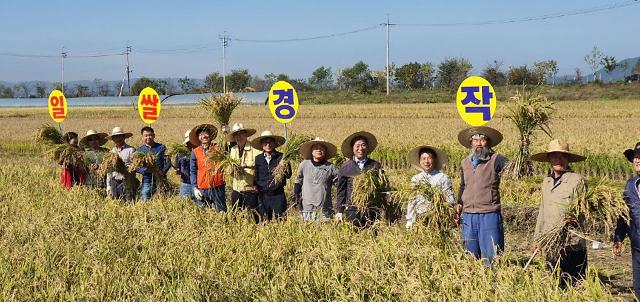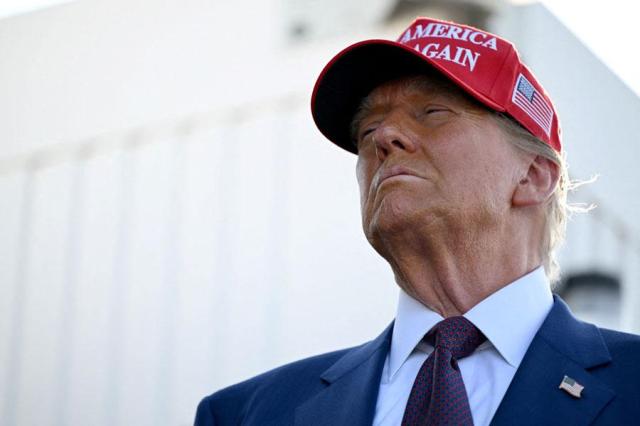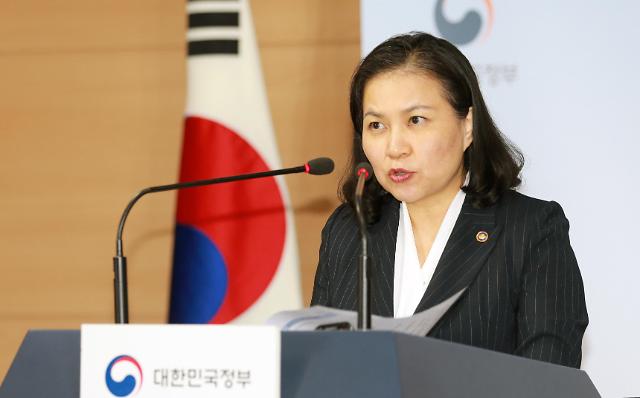
A file picture shows farmers reaping crops in a rice field. [Yonhap News Photo]
SEOUL -- Bowing to U.S. pressure, South Korea decided to give up preferential treatment as a developing country, making a de facto declaration that it would be treated as a developed country in the international community, given its enhanced economic power.
South Korea's developing country status has been kept since 1995. U.S. President Donald Trump has pushed for substantial progress in overhauling World Trade Organization (WTO) rules so that self-declared developing countries do not take advantage of special and differential treatment. Trump has warned of tariffs of up to 25 percent on imported autos and parts.
Washington insists that the Geneva-based intergovernmental organization should not give developing country status if certain countries meet certain criteria -- being members of the Group of 20 advanced economies, being members of the Organization for Economic Cooperation and Development, being high-income countries as classified by the World Bank and taking up at least 0.5 percent of total global trade.
In terms of growth domestic product (GDP), exports and national income, the international community does not recognize South Korea as a developing country any longer, Economy and Finance Minister Hong Nam-ki said on Friday. "Given our economic status, it is difficult for us to be recognized as a developing country in the international community."
"Even if we delay our decision on preferential treatment for developing countries at this point, there is little possibility that future WTO negotiations will grant us the benefits of developing countries, and there are growing fears that the delay in our decision may result in the loss of both our external cause and negotiating power," said Hong who concurrently serves as deputy prime minister.
Until a new round of negotiations is concluded, South Korea will maintain its developing country status, Hong said, adding time-consuming negotiations would allow farmers to draw up a contingency plan. "It will take a long time for future negotiations to resume and reach an agreement."
"Even if we decide not to claim special developing country treatment, we don't have any immediate impact on the agricultural sector, and we have plenty of time and ability to prepare for any possible impact from future negotiations," Hong said.
In future negotiations, South Korea will do its best to protect sensitive agricultural areas such as rice. "We will make every effort to protect the sensitive areas of domestic agriculture, including rice, as much as possible in future WTO negotiations."
Rice is still the main source of daily calories, but annual rice consumption has been on the decline, leading to a surge in the rice inventory. The government has provided subsidies to farms and purchased oversupplied rice as compensation for falling prices. State warehouses are packed with rice reserves, far higher than 800,000 tons recommended by the Food and Agriculture Organization.
South Korea imposes a 513 percent tariff on imported rice for quantities outside the quota of 409,000 tons of annual rice imports under the system of tariff-rate quotas meant to provide minimum market access.
-0-
Copyright ⓒ Aju Press All rights reserved.



![[FOCUS] Trump puts free trade watchdog WTO in crisis of existence](https://image.ajunews.com/content/image/2019/07/24/20190724103616228216.jpg)